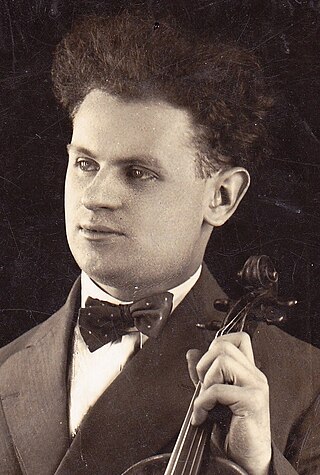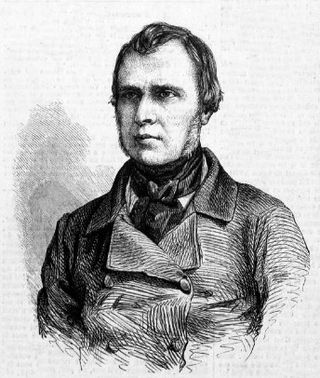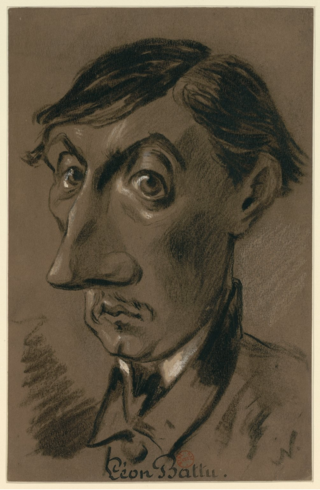Related Research Articles

Daniel-François-Esprit Auber was a French composer and director of the Paris Conservatoire.

L'oca del Cairo is an incomplete Italian opera buffa in three acts, begun by Wolfgang Amadeus Mozart in July 1783 but abandoned in October. The complete libretto by Giambattista Varesco remains. Mozart composed seven of the ten numbers of the first act, plus some recitative, as well a sketch for a further aria; the extant music amounts to about 45 minutes.

Ernest Guiraud was an American-born French composer and music teacher. He is best known for writing the traditional orchestral recitatives used for Bizet's opera Carmen and for Offenbach's opera Les contes d'Hoffmann.

Jules Étienne Pasdeloup was a French conductor.
Paul Bonneau was a French conductor, composer and arranger, whose career was mainly in the field of light music and films.

Paul Henri Büsser was a French classical composer, organist, conductor and teacher. Among his teachers were César Franck, Charles Gounod and Jules Massenet. In addition to his own compositions Büsser edited and orchestrated a wide range of music – mostly but not exclusively French – dating from the 17th to the 20th centuries. He was at various times in his career the conductor of the Paris Opéra and the Opéra-Comique, and professor of composition at the Conservatoire de Paris.

Manuel Rosenthal was a French composer and conductor who held leading positions with musical organizations in France and America. He was friends with many contemporary composers, and despite a considerable list of compositions is mostly remembered for having orchestrated the popular ballet score Gaîté Parisienne from piano scores of Offenbach operettas, and for his recordings as a conductor.

The Théâtre Lyrique was one of four opera companies performing in Paris during the middle of the 19th century. The company was founded in 1847 as the Opéra-National by the French composer Adolphe Adam and renamed Théâtre Lyrique in 1852. It used four different theatres in succession, the Cirque Olympique, the Théâtre Historique, the Salle du Théâtre-Lyrique, and the Salle de l'Athénée, until it ceased operations in 1872.

Léon Carvalho was a French impresario and stage director.

Crispino e la comare o Il medico e la morte is an opera written collaboratively by Luigi Ricci and Federico Ricci with an Italian libretto by Francesco Maria Piave.
Louis Michel Adolphe Deloffre was a French violinist and conductor active in London and Paris, who conducted several important operatic premieres in the latter city, particularly by Charles Gounod and Georges Bizet.

Narcisse Girard was a French violinist, conductor and composer.
Jean-Christophe Keck is a French musicologist and conductor, born in Briançon, in 1964. He is particularly noted as a specialist in the works of Jacques Offenbach, and is the director of the complete critical edition in progress, named after both, Offenbach Edition Keck (OEK).

Léon Battu was a French dramatist, born 1829 in Paris, where he died on 22 November 1857.

Henri Valentino was a French conductor and violinist. From 1824 to 1832, he was co-conductor of the Paris Opera, where he prepared and conducted the premieres of the first two grand operas, Auber's La muette de Portici and Rossini's Guillaume Tell. From 1832 to 1836, he was First Conductor of the Opéra-Comique, and from 1837 to 1841, conductor of classical music at the Concerts Valentino in a hall on the rue Saint-Honoré in Paris.

Théâtre de l'Athénée or Salle de l'Athénée was the name of a theatre in the basement of a building built in 1865 by the banker Bischoffsheim at 17 rue Scribe in the 9th arrondissement of Paris. The Athénée was initially small, with a capacity of 760 spectators, but was enlarged to 900 places by the addition of a top gallery in 1867. The interior was decorated by Charles Cambon. The venue was used by a variety of companies, including the Théâtre des Fantaisies-Parisiennes (1869), the Théâtre Lyrique (1871–1872), the Théâtre Scribe (1874–1875), and the Athénée-Comique (1876–1883). It closed permanently in 1883.

Albert Millaud was a French journalist, writer and stage author.
Eugène Gaston Mestépès was a 19th-century French librettist, playwright and theatre director.

Emmanuel Trenque is a contemporary French choir conductor.

Louis Martinet was a French painter, gallery owner and theater director.
References
- ↑ Denis Havard de la Montagne: "Prix de Rome 1860-1869 : Charles CONSTANTIN (1835 – 1891)" at the Musica et Memoria website, accessed 5 February 2009.
- ↑ William Mann: The Operas of Mozart (London: Cassell, 1977).
- ↑ T. J. Walsh: Second Empire Opera. The Théâtre-Lyrique, Paris, 1851-1870 (London: John Calder, 1981).
- ↑ Mina Kirstein Curtiss: Bizet and his World (New York: Vienna House, 1974).